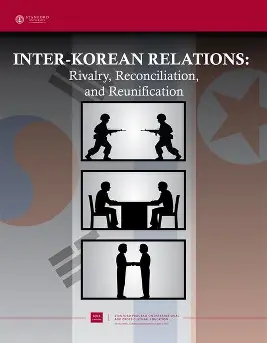In the Catholic Times' 'Window of the Ark' column by a Seoul Diocesan priest, the reader is reminded of the situation in which Korea finds itself on the 75th anniversary of the Korean War. A heartbreaking war! At times, brothers, parents, and children became enemies and fought each other with guns. It was a fratricidal war.
75 years have passed since the day when brothers began fighting as enemies, as if to prove the words of Jesus who came to give a sword that separated a son from his father, a daughter from her mother, and a daughter-in-law from her mother-in-law. The Korean War is recorded as the war that caused the most horrific war damage among the wars that occurred on the Korean Peninsula.
Depending on the source, there are many discrepancies in the figures. Still, according to records, the total number of military casualties, including the South Korean military, is 800,000, with 900,000 wounded and 200,000 missing or captured. A total of 2.5 million civilians were killed, wounded, or abducted on the Korean Peninsula. The pain of millions of separated families continues to this day, and the repercussions continue to spread among individuals, regions, the Korean Peninsula, and the entire world, creating further sorrow. The war that brought such misery led to a temporary ceasefire, and the upcoming 27th marks Armistice Day—the day the three-year war was temporarily halted.
Even 72 years later, the war has not ended. The conflict has escalated into an ideological war and even a war of daily life. Residents in regions where the front lines shifted several times within just one year of the war's onset endured relentless retaliation and punishment, spending their days and nights in fear. Even after the fighting ceased, massacres continued, leading to a horrific situation where the entire population suffered from post-traumatic stress disorder.
Among civilian victims, the fact that half of them lost their lives in massacres goes beyond mere suffering, creating a devastating situation that shakes the very nature of humanity with extreme resentment and anger. The bizarre terms “defection to the North,” “abduction to the North,” “surrender,” and “defection to the South” continue to torment the families left behind, disrupting their lives. Under the guise of the “family responsibility system” and the “National Security Law,” the extent to which citizens' basic rights have been violated is unknown.
This ongoing division has become the freezing point that causes all the tragedies unfolding on the Korean Peninsula. At the confirmation hearing for the Minister of National Defense, the first question asked is not how to ensure the safety of citizens' lives and property. They probe the nominee's thoughts on whether North Korea is an enemy or not.
Even when engaging in debate over important decisions in our society, the thoughts that arise in one's mind must always undergo multiple rounds of verification. Efforts made for peace, whether by individuals or organizations, have been treated as hostile acts that benefit North Korea.
Even expressing discomfort with the proud K-defense industry that exports weapons that kill people, or talking about peace, requires caution. The bizarre logic that the enemy of my enemy is my friend, and the friend of my enemy is my enemy, is still our uncomfortable reality.
In this context, it is very encouraging and empowering that the first words of Pope Leo XIV were “peace.” In his first blessing to Rome and the world, he shared with everyone “the peace of the risen Christ, the peace that lays down arms, the peace that causes arms to be laid down, the peace that is humble and patient, and the peace that comes from God.”
During his inauguration Mass, he appealed to the Church and the entire world to “become the leaven of hope that brings peace.” Inspired by this gracious appeal, we earnestly hope that this year, marking the 80th anniversary of liberation and division, will be a year when the terms “ceasefire” and ‘armistice’ are replaced with the new names “end of war” and “first year of peace.”






